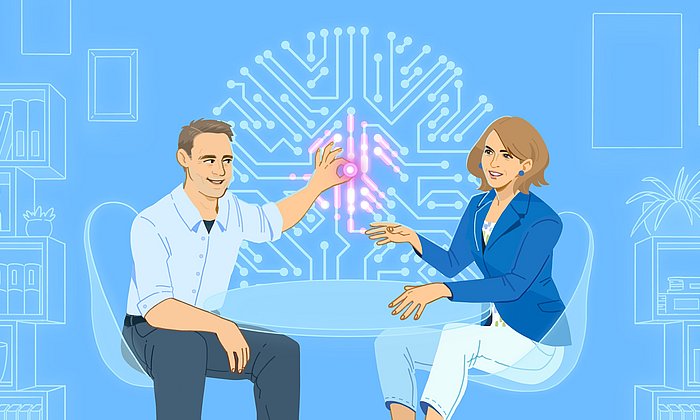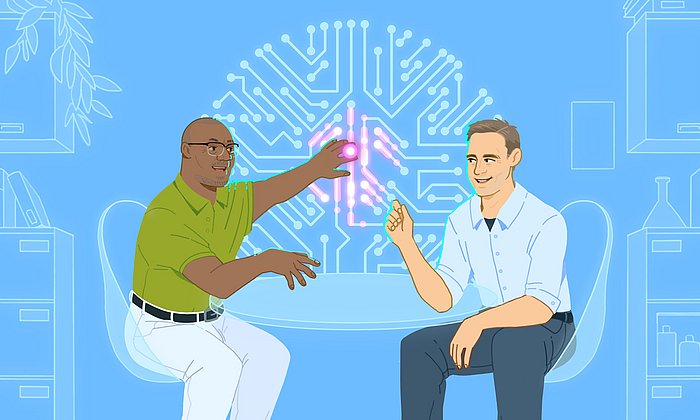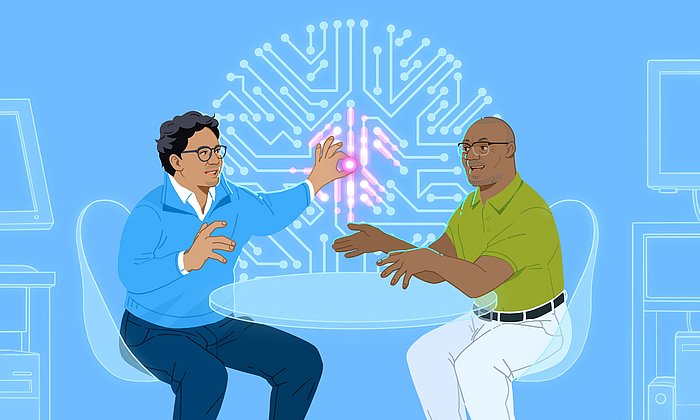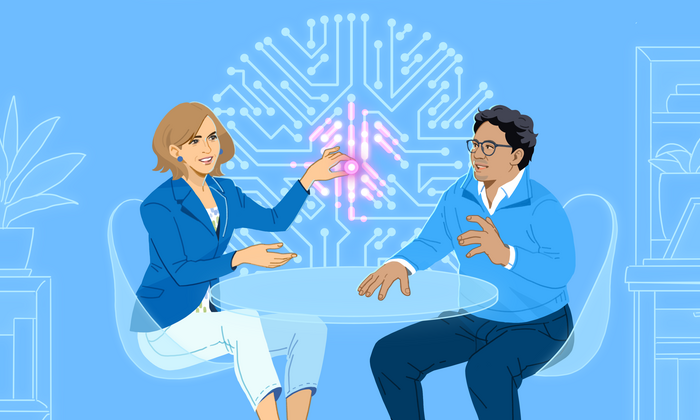"One Topic, One Loop": Enkelejda Kasneci
Generative AI: Knowledge creates trust

In this dialogue series, we traveled through four countries and four perspectives on Generative AI: from the opportunity to foster creativity and critical thinking to strategies for not leaving the development of the technology in the hands of a few. From neuroscientific concepts to distinguish utterances of an AI from those of humans to the indispensability of data sets that reflect the relativity of all human beings. A journey that reveals the complexity and vastness of the discourse surrounding Generative AI. To conclude, I would like to summarize some of the thoughts of my colleagues that have stuck with me.
Large Language Models as commodities like electricity or water
Like Sune Lehmann's analogy that Large Language Models will be like electricity or water in the future. It is particularly striking because it underscores the urgency of ensuring that these tools are transparent, accessible, and do not become monopolized commodities. The call for Generative AI to be open source is therefore only logical, as is the call for an ethical and legal framework for these applications.
Another impressive contribution came from Jerry John Kponyo, who is researching AI solutions specifically for the African continent at the Responsible AI Lab in Ghana. He showed the importance of training AI with data sets that reflect human experiences from all over the world. This is the only way to prevent the technology from reproducing stereotypes and discrimination.
AI education in the curricula of all disciplines
Neuroscientist Aldo Faisal shed light on the competition between developers who enable AI systems to communicate more and more like humans and those who build better and better systems for recognizing AI utterances. Like Jerry John Kponyo, however, he further differentiated the importance of transdisciplinarity: This must be reflected not only in development, but also in education, so that a basic understanding of AI is taught across all disciplines. Because, as Aldo emphasized, only those who know how a technology works, who understand its limits and its possibilities, will ultimately be able to fully trust it.
For me this is a great conclusion to our dialogue, which showed that Generative AI must be a collective and global endeavor, and that we have to act together to harness the potential of this technology while protecting against its pitfalls. It also showed that all of this requires trust, and that one of the most powerful ways to build this trust is education.
Finally, I would like to express my hope that formats like this can spark a discussion in society at large. The journey of generative AI has just begun, and only together, we can shape it for the benefit of all!
Four people from four different countries and four different universities discuss a current topic in research and teaching. The series begins with an initial question to which the first person responds and asks the next person another question on the same topic. The series ends with the first person answering the last question and reflecting on all previous answers. The topic of the first season is Large Language Models and their impact on research and teaching.
Our authors are: Enkelejda Kasneci, Head of the Chair for Human-Centered Technologies for Learning at the TUM School of Social Sciences and Technology, Aldo Faisal, Professor of AI & Neuroscience at Imperial College London, Jerry John Kponyo, Associate Professor of Telecomunnications Engineering at Kwame Nkrumah' University of Science and Technology and Sune Lehmann Jørgensen, Professor at the Department of Applied Mathematics and Computer Science at Technical University of Denmark.
- Prof. Dr. Enkelejda Kasneci is heading of the Chair of Human-Centered Technologies for Learning at the TUM School of Social Sciences and Technology and is director of the TUM Center for Educational Technologies and a member of the Munich Data Science Institute at TUM. Before being appointed to a professorship at TUM, Enkelejda Kasneci studied informatics and conducted research into human-machine interactions at the University of Tübingen.
- Digital transformation at TUM



